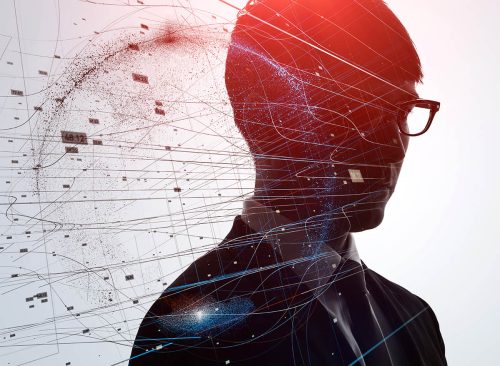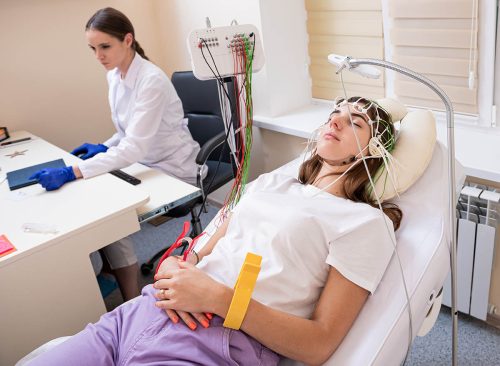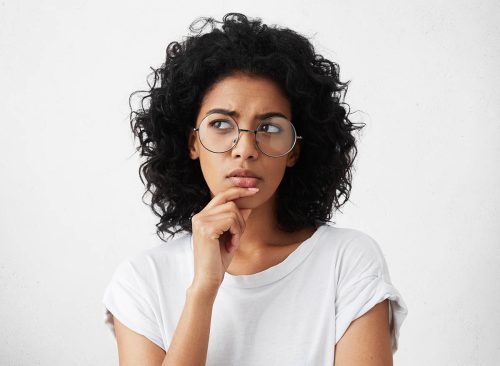Déjà Vu May Be Your Brain Correcting Its Own Errors, Scientists Say
Brain "checks" feeling against memories.

It’s one of the most unsettling human experiences and one of the most mysterious. Déjà vu—the impression that you’re re-experiencing something you’ve already done in the past—is incredibly common. Scientists aren’t sure what causes it. But recent studies suggest it might be the brain correcting its own errors.
Déjà vu isn’t the easiest thing to study because it tends to happen spontaneously and disappear. But scientists who specialize in the study of déjà vu point to research that has pinpointed some intriguing theories. Read on to find out more.
Brain “Checks” Feeling Against Memories

The feeling of déjà vu may occur when parts of your brain that recognize familiar situations become activated inappropriately, Akira Robert O’Connor, a cognitive psychologist at the University of St. Andrews in Scotland, who researches déjà vu, told Scientific American this month. When this happens, another region of the brain then checks the familiar feeling against your actual memories of past experiences. When no matches are found, the result is an unnerving sense you’ve seen or done something before—and the knowledge that you haven’t. The brain gives you a sense that the experiences don’t match up, and you get the equivalent of an error message. “It feels like an error, even though it’s probably actually the avoidance of an error,” said O’Connor.
Who Coined the Term Déjà Vu?

Déjà vu means “already seen” in French. It’s believed French philosopher Émile Boirac coined the term in a letter to the editor of Revue Philosophique de la France et de l’Étranger in 1876. Boirac theorized that traces of long-forgotten observations or perceptions were responsible for the feeling. There is some evidence that this explanation might not be too far off.
Study Reproduced Déjà Vu In Lab

Scientific American points out that a 2009 study suggests that similarities between one experience and another might provoke the feeling. Researchers at Colorado State University were able to spark the feeling of déjà vu in a laboratory setting by showing study participants virtual scenes that have some subtle similarities to one another, such as the placement of furniture relative to a painting on the wall. The study found that viewing subtler similar scenes was more likely to cause feelings of déjà vu than viewing dissimilar scenes.
Another Theory: It’s Just Random

Of course, the feeling could just be random. One argument supporting this: Younger people experience deja vu more often than older people (who have many more memories and experiences for the brain to internally compare). The part of the brain responsible for detecting familiarity—the medial temporal lobe, which plays a critical role in encoding and retrieving memories—may fire off overenthusiastically for no particular reason, O’Connor told the news outlet. Younger brains “fire” more readily than older ones.
Frontal Cortex May Also Be Responsible

Older brains also may be less adept at fact-checking familiar feelings when they come up, cognitive neuropsychologist Chris Moulin told Scientific American. The brain’s fact-checker is located in the frontal cortex, behind the forehead. This region may be less flagging those false feelings with age. “It’s not perhaps that older adults are not generating false familiarity,” said Moulin. ”It’s just that they don’t have, anymore, that certainty that what they’re experiencing is false.”














